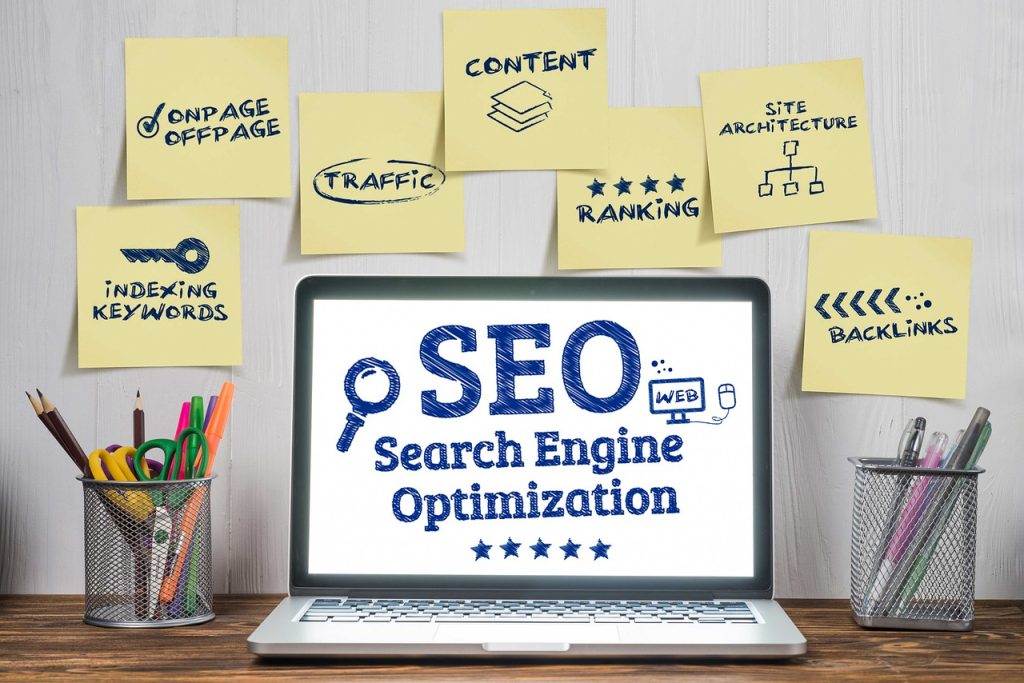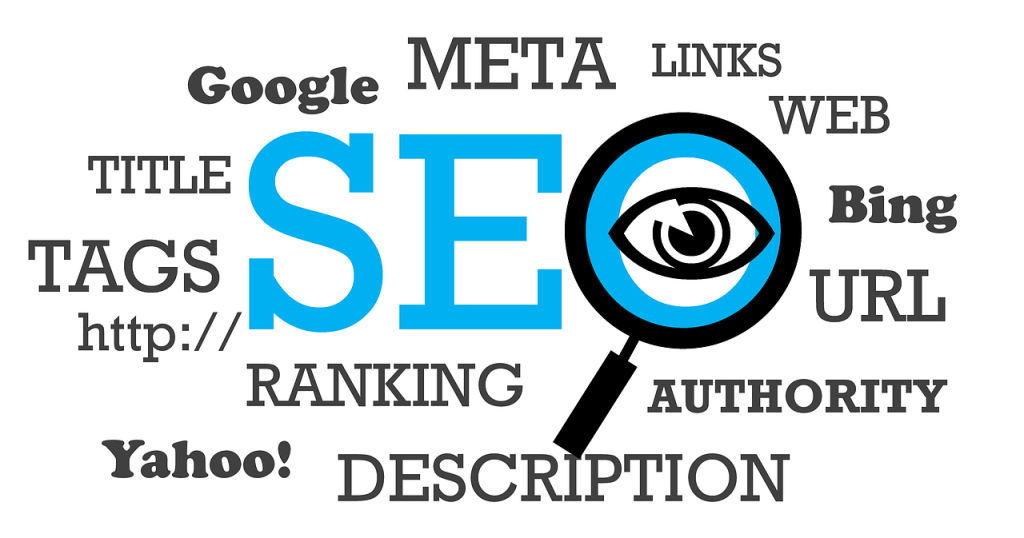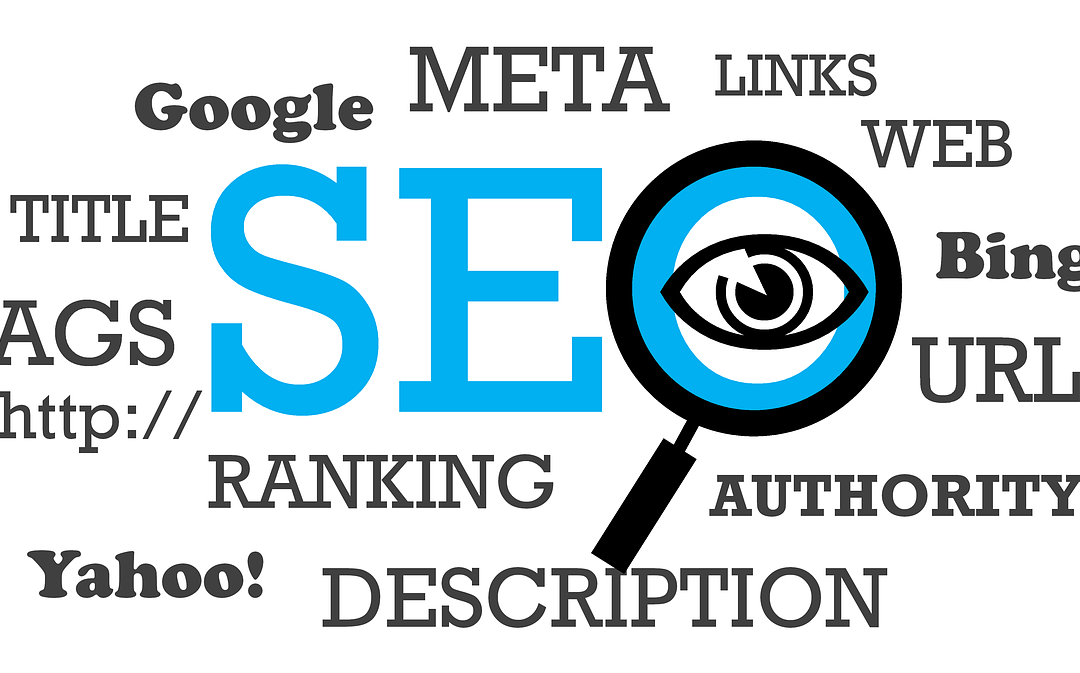Table of Contents
If you’re interested in increasing your website’s visibility and attracting more organic traffic, then improving your website’s ranking on search engine results pages (SERPs) is crucial. With the ever-growing competition in the online world, it’s important to take proactive steps to optimize your website for search engines.
From implementing relevant keywords to creating high-quality content, there are numerous strategies you can employ to climb up the SERPs and reach your target audience effectively.
So, buckle up and get ready to explore the world of SEO and discover how you can elevate your website’s ranking to new heights.

Website Optimization
Keyword Research and Optimization
One of the key aspects of improving your website’s ranking on search engine results pages (SERPs) is conducting thorough keyword research and optimizing your content accordingly. By identifying relevant keywords and incorporating them strategically in your website’s content, you increase the likelihood of search engines recognizing the relevance of your website to these keywords. This, in turn, improves your chances of ranking higher in SERPs.
Create Quality Content
High-quality content is essential for improving your website’s ranking on SERPs. By creating valuable, relevant, and engaging content, you can attract and retain visitors to your website. Search engines value websites that provide useful information to users, so investing in creating quality content is crucial. Consider incorporating different types of content such as articles, blog posts, videos, or infographics to appeal to a wider audience.
Optimize Meta Tags
Meta tags play a crucial role in improving your website’s visibility on SERPs. Meta tags include title tags and meta descriptions, which are the first things users see when your website appears in search results. By optimizing these tags with relevant keywords and compelling descriptions, you can attract more clicks and increase your website’s visibility. Additionally, meta tags provide search engines with valuable information about your website’s content, helping them understand its relevance to specific queries.
Improve Website Loading Speed
Website loading speed is a critical factor not only in user experience but also in search engine rankings. Slow-loading websites tend to have higher bounce rates and lower conversion rates. To improve your website’s loading speed, optimize your images, minimize HTTP requests, leverage browser caching, and minimize code and script files. By enhancing your website’s loading speed, you can provide a better user experience and increase the likelihood of higher rankings on SERPs.
Mobile-Friendly Design
With the increasing use of mobile devices, having a mobile-friendly website is no longer optional. Search engines prioritize mobile-friendly websites in their rankings, as they want to ensure that users have a positive experience when accessing websites on their mobile devices. To optimize your website for mobile devices, use responsive design techniques that adjust the layout and content of your website based on the device’s screen size. This will improve user experience and boost your website’s visibility on SERPs.
Technical SEO
Optimize Site Structure
A well-optimized site structure is crucial for both search engines and users. By organizing your website’s content in a logical and hierarchical manner, you make it easier for search engines to crawl and index your pages. This, in turn, improves your website’s visibility and accessibility on search engine results pages. Ensure that your website has clear navigation menus, a sitemap, and properly structured URLs to enhance the user experience and improve search engine rankings.
Use Schema Markup
Schema markup is a structured data markup language that provides search engines with additional information about your website’s content. By implementing schema markup, you can enhance your website’s appearance on search engine results pages and provide users with more context about your content. Schema markup can be utilized to highlight important information such as ratings, reviews, product details, and event information. Including schema markup on your website can increase its visibility and improve its chances of ranking higher on SERPs.
Improve URL Structure
Optimizing your website’s URL structure is another important aspect of technical SEO. A well-structured URL should be descriptive, concise, and keyword-rich. Including relevant keywords in your URLs can help search engines understand the content of your pages and improve your website’s visibility on SERPs. Additionally, clean and user-friendly URLs are easier to read and remember for users, which can lead to higher click-through rates and improved user experience.
Enable SSL Certificate
Enabling SSL (Secure Sockets Layer) certificate on your website is not only important for security purposes but also for SEO. Search engines prioritize websites that have SSL certificates, as they provide a secure connection between the website and the user’s browser. Having an SSL certificate not only boosts your website’s rankings but also instills trust and confidence in your visitors. With increasing concerns about online security, it is essential to enable SSL on your website to improve its visibility and rankings on SERPs.
Backlink Building
Create High-Quality Content
Creating high-quality content is not only important for on-page optimization but also for attracting valuable backlinks. By producing valuable, informative, and engaging content, other websites are more likely to link to your website as a credible source of information. By incorporating relevant keywords, visual elements, and authoritative references, you increase the likelihood of earning backlinks from reputable websites. These backlinks signal to search engines that your website is trustworthy and relevant, leading to improved rankings on SERPs.
Guest Blogging
Guest blogging is a popular and effective method of building backlinks. By writing informative and valuable articles for other websites in your industry, you can secure backlinks to your own website. When guest blogging, make sure to include a relevant and contextual link back to your website within the content or author bio. This not only improves your website’s visibility but also establishes your authority within your industry.
Reach Out to Influencers
Influencers in your industry can have a significant impact on your website’s visibility and backlink profile. By reaching out to influencers and establishing genuine relationships, you can potentially secure backlinks from their websites or social media profiles. Engage with influencers by sharing their content, participating in their discussions, and offering value to their audience. By demonstrating your expertise and building trust, you increase the likelihood of influencers linking back to your website.
Utilize Social Media Platforms
Social media platforms provide an excellent opportunity to build backlinks and increase your website’s visibility. By sharing your website’s content on social media, you can attract attention, engagement, and shares from your audience. The more people share your content, the more likely it is to be seen by influential individuals or websites, leading to potential backlinks. Additionally, social media platforms often have high domain authority, which means that links shared on these platforms can positively impact your website’s rankings on SERPs.
Local SEO
Claim Your Google My Business Listing
For businesses with a physical presence, claiming and optimizing your Google My Business listing is crucial for local SEO. Google My Business allows you to provide essential information about your business, such as address, phone number, website, and opening hours. By claiming and optimizing your listing, you increase your chances of appearing in local search results and Google Maps. Ensure that your information is accurate and up-to-date, and encourage customers to leave reviews, as this also impacts local SEO.
Optimize Your Website for Local Keywords
To improve your website’s visibility in local search results, you need to optimize your website for local keywords. Incorporate relevant keywords that include your business’s location in your website’s content, meta tags, and headings. By targeting location-specific keywords, you increase your chances of appearing in local search results when users search for products or services in your area.
Get Online Reviews
Online reviews play a crucial role in local SEO. Positive reviews not only improve your business’s reputation but also increase your visibility in local search results. Encourage satisfied customers to leave reviews on platforms such as Google My Business, Yelp, or industry-specific review websites. Respond to reviews, both positive and negative, as this shows potential customers that you value their feedback and are responsive to their needs.
Build Local Citations
Local citations are online mentions of your business name, address, and phone number (NAP) on various websites, directories, and platforms. Building local citations helps search engines verify the accuracy of your business information and improves your website’s visibility in local search results. Ensure that your NAP information is consistent across all citations and directories. Seek out relevant and authoritative websites and directories to list your business.

User Experience
The user interface and navigation of your website play a crucial role in improving user experience and increasing your website’s rankings on SERPs. Ensure that your website has a clean and intuitive design that makes it easy for users to navigate and find the information they need. Use clear headings, well-organized menus, and breadcrumbs to guide users through your website. Additionally, use visual elements such as images, videos, and infographics to enhance user engagement and understanding.
Improve Website Accessibility
Website accessibility is essential for ensuring that all users, regardless of disabilities or impairments, can access and navigate your website. Consider implementing accessibility features such as alt text for images, keyboard navigation, and text-to-speech options. By making your website accessible, you improve the user experience for all visitors and increase your chances of ranking higher on SERPs.
Reduce Bounce Rate
A high bounce rate indicates that visitors are leaving your website shortly after landing on it, which can negatively impact your website’s rankings on SERPs. To reduce bounce rates, focus on creating engaging and relevant content that encourages users to explore your website further. Improve page load times, optimize your website for mobile devices, and ensure that your website’s design is visually appealing and user-friendly.
Ensure Mobile Responsiveness
With the increasing use of mobile devices, it is crucial to ensure that your website is optimized for mobile responsiveness. Mobile-friendly websites not only improve user experience but also rank higher on SERPs. Use responsive design techniques that adjust your website’s layout and content based on the user’s device. Test your website’s mobile responsiveness regularly to ensure optimal performance and high rankings on mobile search results.
Social Signals
Sharing your website’s content on social media platforms is an effective way to improve its visibility and rankings on SERPs. By sharing valuable and engaging content, you can attract attention, generate social signals, and potentially earn backlinks. Encourage your audience to share your content on their social media profiles to increase its reach and visibility.
Encourage Social Sharing
Make it easy for users to share your website’s content by incorporating social sharing buttons on your webpages. These buttons allow users to quickly share your content on their preferred social media platforms, increasing its exposure and potential for backlinks. Implementing social sharing buttons can boost your website’s visibility on SERPs and improve user engagement.
Engage with Followers and Respond to Comments
Engaging with your followers and responding to their comments on social media is essential for building relationships and increasing your website’s visibility. By actively participating in conversations and responding to comments, you encourage user engagement and establish yourself as an authority. This can lead to increased social signals and potentially more backlinks, ultimately improving your website’s rankings on SERPs.

Analytics and Tracking
Setup Google Analytics
Setting up Google Analytics is crucial for monitoring and tracking your website’s performance. Google Analytics provides valuable insights into your website’s traffic, user behavior, conversion rates, and much more. By analyzing this data, you can identify areas for improvement, track the effectiveness of your SEO efforts, and make data-driven decisions to optimize your website’s performance and rankings on SERPs.
Monitor Website Performance
Regularly monitoring your website’s performance allows you to identify any issues and take corrective actions promptly. Keep an eye on key metrics such as page load speed, bounce rate, time on page, and conversion rates. Identify any bottlenecks or areas where user experience can be improved, and prioritize resolving them to enhance your website’s visibility and rankings on SERPs.
Track Key Metrics
Tracking key metrics is essential for evaluating the effectiveness of your SEO strategy and identifying areas for improvement. Monitor metrics such as organic search traffic, keyword rankings, backlinks, and social media engagement. By tracking these metrics over time, you can assess the impact of your efforts, make necessary adjustments, and improve your website’s visibility on SERPs.
Analyze and Adjust SEO Strategy
Regularly analyze the results of your SEO efforts and adjust your strategy accordingly. Identify which tactics are driving results and focus on optimizing those areas further. Likewise, identify areas where your strategy may be falling short and make necessary adjustments. SEO is an ongoing process, and continuous analysis and adjustment are vital for improving your website’s ranking on SERPs.
Content Marketing
Produce Valuable and Relevant Content
Content marketing is a powerful strategy for improving your website’s visibility and rankings on SERPs. By producing valuable and relevant content, you can attract and engage your target audience. Focus on creating content that answers common questions, provides solutions, or offers valuable insights to your audience. Incorporate relevant keywords, break up the content into digestible sections, and optimize it for readability and shareability.
Implement Effective Content Distribution Strategy
Creating great content is just one part of the equation; effective distribution is equally important. Develop a content distribution strategy that targets your audience across various platforms. Share your content on social media, email newsletters, industry forums, and relevant websites. Collaborate with influencers or other websites to amplify your content’s reach. The more exposure your content gets, the more likely it is to be shared and linked back to, ultimately improving your website’s rankings on SERPs.
Utilize Video and Infographics
Video and infographics are powerful visual content formats that can enhance your content marketing efforts. Videos are engaging and easily shareable, making them effective for increasing user engagement and attracting backlinks. Infographics present complex information in a visually appealing and easily digestible format, making them highly shareable and link-worthy. Incorporate videos and infographics into your content marketing strategy to improve your website’s visibility and rankings on SERPs.
Guest Posting
Guest posting on reputable websites in your industry is an excellent way to build backlinks, expand your audience, and improve your website’s visibility on SERPs. Identify high-quality websites that accept guest posts and contribute valuable content to them. Include relevant links back to your website within the content or author bio. Guest posting not only increases your website’s visibility but also establishes your authority and credibility within your industry.
Local Directories and Listings
Submit to Local Directories
Submitting your business to local directories is an effective way to improve your website’s local visibility and rankings on SERPs. Identify relevant local directories or industry-specific directories and submit your business information. Ensure that your business’s name, address, and phone number (NAP) are consistent across all directories. Listing your business in local directories improves your chances of appearing in local search results and increases your website’s visibility to potential customers.
Optimize Listings with Accurate Information
Optimizing your listings on local directories with accurate and up-to-date information is crucial for local SEO. Ensure that your NAP information is consistent across all directories. Include relevant keywords and a compelling description of your business to attract potential customers. Add high-quality images and videos that showcase your products or services. By optimizing your listings, you improve the visibility of your business on local search results and increase your website’s local rankings.
Manage Online Reputation
Managing your online reputation is essential for building trust and credibility. Monitor your online presence and respond promptly and professionally to any negative reviews or comments. Encourage satisfied customers to leave positive reviews on platforms such as Google My Business or Yelp. Your online reputation not only impacts your local rankings but also influences potential customers’ decision-making process.
Monitor and Respond to Reviews
Regularly monitor reviews of your business on various platforms and respond to them promptly. Whether the reviews are positive or negative, show appreciation for feedback and address any concerns or issues raised. By actively engaging with reviews, you demonstrate your commitment to customer satisfaction and provide potential customers with confidence in your business. This, in turn, can positively impact your website’s local rankings on SERPs.
Stay Updated with SEO Trends
Follow SEO Blogs and News Websites
Staying updated with the latest SEO trends and industry news is crucial for maintaining an effective SEO strategy. Follow reputable SEO blogs and news websites to stay informed about algorithm updates, new optimization techniques, and industry insights. Regularly reading and learning from these sources will help you stay ahead of the curve and make informed decisions to improve your website’s rankings on SERPs.
Participate in SEO Communities
Engaging in SEO communities and forums allows you to connect with other professionals in the field and gain valuable insights and advice. Participate in discussions, ask questions, and share your knowledge and experiences. By being an active member of SEO communities, you can stay updated with the latest trends, exchange ideas, and refine your SEO strategy to improve your website’s rankings on SERPs.
Stay Informed About Algorithm Updates
Search engine algorithms are constantly evolving, and staying informed about algorithm updates is crucial for maintaining a strong SEO strategy. SEO blogs, news websites, and industry forums are excellent sources for learning about algorithm updates and understanding their implications. By staying informed, you can adapt your SEO tactics accordingly to ensure that your website remains optimized and maintains its visibility on SERPs.
Conduct Regular SEO Audits
Regularly conducting SEO audits allows you to evaluate the effectiveness of your strategy and identify areas for improvement. Analyze your website’s performance, keyword rankings, backlink profile, and other important metrics. Identify any issues, such as broken links, duplicate content, or outdated optimization techniques, and take corrective actions. By conducting regular SEO audits, you can continuously optimize your website and improve its rankings on SERPs.














